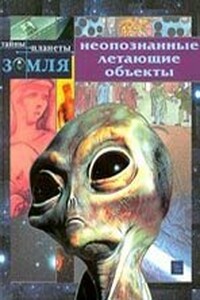Английский язык для специальных и академических целей: Международные отношения и зарубежное регионоведение. Часть 1 - [59]
The third scenario is already in play, thanks to the 2011 European Union Act. Passed by the coalition, this dictates that a referendum must be held on any new EU treaty that shifts power from Westminster to Brussels. The EU is acutely aware of this obstacle, so where treaty change is envisaged, it is trying to focus it as narrowly as possible on the euro zone, of which Britain is not a member. But the EU's creeping claim on its constituents' sovereign powers suggests that this “referendum lock” could be activated. The next treaty change, which could take place in 2015 or 2016, will be the moment for Mr. Cameron (if he is re-elected) to try to repatriate some powers from Brussels in the “new settlement” he seeks with Europe. If Britons voted to reject the revised treaty there would be redoubled pressure for a second referendum, on their membership of the European club.
There is a fourth scenario: simple diplomatic miscalculation. A year ago, at a summit where they agreed on a fiscal compact, almost all other EU leaders banded together to sidestep a British veto. If that were to happen again on an issue that Britons care more deeply about, Mr. Cameron may face irresistible pressure to call an early referendum.
The early signs are that Britons would opt to push off. YouGov's latest poll on the issue suggests that 49% would vote to leave, whereas only 32% would choose to stay (the rest are unsure). One senior Tory, who wants Britain to stay in, says blankly that it would be impossible to win a referendum at the moment.
Unit III. EU at the Crossroads
The leaders of all three main parties, backed by business and trade unions, could try to woo Britons to Europe. But they would have plenty of opposition, and not just from other MPs. When Britain last voted on Europe, in 1975, every national newspaper except the Morning Star campaigned for an “In” vote. That will not be repeated. Britain's two biggest-selling dailies, the Daily Mail and the Sun — combined circulation, 4.5m — are deeply Eurosceptic.
What would make the vote unpredictable is that Britons cannot have what they really want. If offered a “detached relationship that is little more than a free-trade agreement”, according to the same YouGov poll, only 26% would still opt for the exit. The biggest group of respondents, 46%, would accept those looser terms. But continental leaders are unwilling to grant Britain full access to the single market without the costly bits. Germany's chancellor, Angela Merkel, says she dearly wants to keep Britain in the EU — but “as a good partner”. In the run-up to a promised referendum, Mr. Cameron could win only trifling concessions. That might convince some Britons that life outside the EU would be difficult; but it might equally inflame Eurosceptic opinion and make an “out” vote more likely.
/to be continued/
A Reminder: tone is the attitude the writer wants to convey, the emotional colouring of his/her writing
Look through the text again and identify the tone of the article. Reread the underlined sentences. Which words, phrases, structures are particularly telling of the style?
Analyse the phrases from the article and decide on the ways to paraphrase them (use synonyms or antonyms suitable to the author's tone, change word class (verb to noun or noun to verb, etc), change sentence structure if necessary keeping the author's tone.
1. Britain has never been too keen on tying the knot with Europe.
2. Britons still think of their relationship with Europe as a transaction.
3. ...the British feel sidelined.
4. .attempt to recreate a free-trade relationship through bilateral agreements.
5. . persuade Labour to follow suit.
6. .to pile pressure on Mr. Cameron but also to stay on the right side of public opinion.
7. The third scenario is already in play.
8. .the EU's creeping claim on its constituents' sovereign powers suggests.
9. . diplomatic miscalculation.
10. .try to woo Britons to Europe.
Unit III. EU at the Crossroads
11. . agreed on a fiscal compact.
12. .win only trifling concessions.
| EuropeUntil the fifteenth century, humans lived in isolated, sequestered worlds. The Chinese didn't know of the Aztecs, and the Mayas didn't know of the Zulus. The Europeans may have heard of the Japanese, but they didn't really know them — and they certainly didn't interact with them. The Tower of Babel had done more than make it impossible for people to speak to each other. It made civilizations oblivious to each other.Europeans living on the eastern rim of the Atlantic Ocean shattered the barriers between these sequestered regions and turned the world into a single entity in which all of the parts interacted with each other. What happened to Australian aborigines was intimately connected to the British relationship with Ireland and the need to find penal colonies for British prisoners overseas. What happened to Inca kings was tied to the relationship between Spain and Portugal. The imperialism of Atlantic Europe created a single world.Atlantic Europe became the center of gravity of the global system. What happened in Europe defined much of what happened elsewhere in the world. Other nations and regions did everything with one eye on Europe. From the sixteenth to the twentieth century hardly any part of the world escaped European influence and power. Everything, for good or evil, revolved around it. And the pivot of Europe was the North Atlantic. Whoever controlled that stretch of water controlled the highway to the world. |
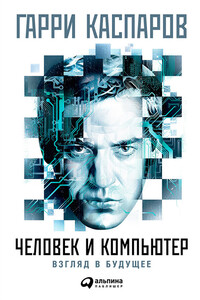
Сегодня искусственный интеллект меняет каждый аспект нашей жизни — ничего подобного мы не видели со времен открытия электричества. Но любая новая мощная технология несет с собой потенциальные опасности, и такие выдающиеся личности, как Стивен Хокинг и Илон Маск, не скрывают, что видят в ИИ возможную угрозу существованию человечества. Так стоит ли нам бояться умных машин? Матчи Гарри Каспарова с суперкомпьютером IBM Deep Blue стали самыми известными в истории поединков человека с машинами. И теперь он использует свой многолетний опыт противостояния с компьютерами, чтобы взглянуть на будущее искусственного интеллекта.
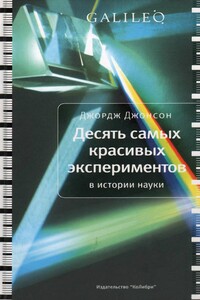
В наше время научные открытия совершатся большими коллективами ученых, но не так давно все было иначе. В истории навсегда остались звездные часы, когда ученые, задавая вопросы природе, получали ответы, ставя эксперимент в одиночку.Джордж Джонсон, замечательный популяризатор науки, рассказывает, как во время опытов по гравитации Галилео Галилей пел песни, отмеряя промежутки времени, Уильям Гарвей перевязывал руку, наблюдая ход крови по артериям и венам, а Иван Павлов заставлял подопытных собак истекать слюной при ударе тока.Перевод опубликован с согласия Alfred A, Knopf, филиала издательской группы Random House, Inc.
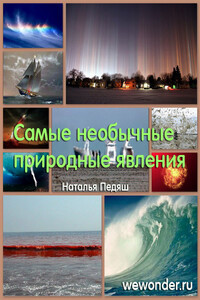
Самые необычные природные явления: брайникл, фата-моргана, прибрежное капучино, огни Святого Эльма, шаровая молния, огненная радуга, огненный вихрь, двояковыпуклые облака, красные приливы, световые столбы, волны-убийцы.
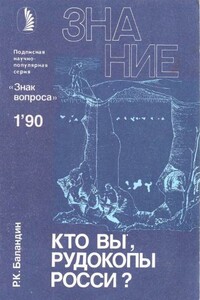
Нам предстоит познакомиться с загадочным племенем рудокопов, обитавших около 2–4 тысячелетий назад в бассейне реки Россь (Западная Белоруссия). Именно этот район называл М. В. Ломоносов как предполагаемую прародину племени россов. Новые данные позволяют более убедительно обосновать и развить эту гипотезу. Подобные знания помогают нам лучше понять некоторые национальные традиции, закономерности развития и взаимодействия культур, формирования национального характера, а также единство прошлого и настоящего, человека и природы.http://znak.traumlibrary.net.
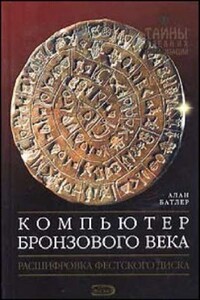
Созданный более 4000 лет назад Фестский диск до сих пор скрывает множество тайн. Этот уникальный археологический артефакт погибшей минойской цивилизации, обнаруженный на острове Крит в начале XX века, является одной из величайших загадок в истории человечества. За годы, прошедшие со дня его находки, многие исследователи пытались расшифровать нанесенные на нем пиктограммы, однако до настоящего времени ни одна из сотен интерпретаций не получила всеобщего признания.Алан Батлер предлагает собственную научно обоснованную версию дешифровки содержимого Фестского диска.
